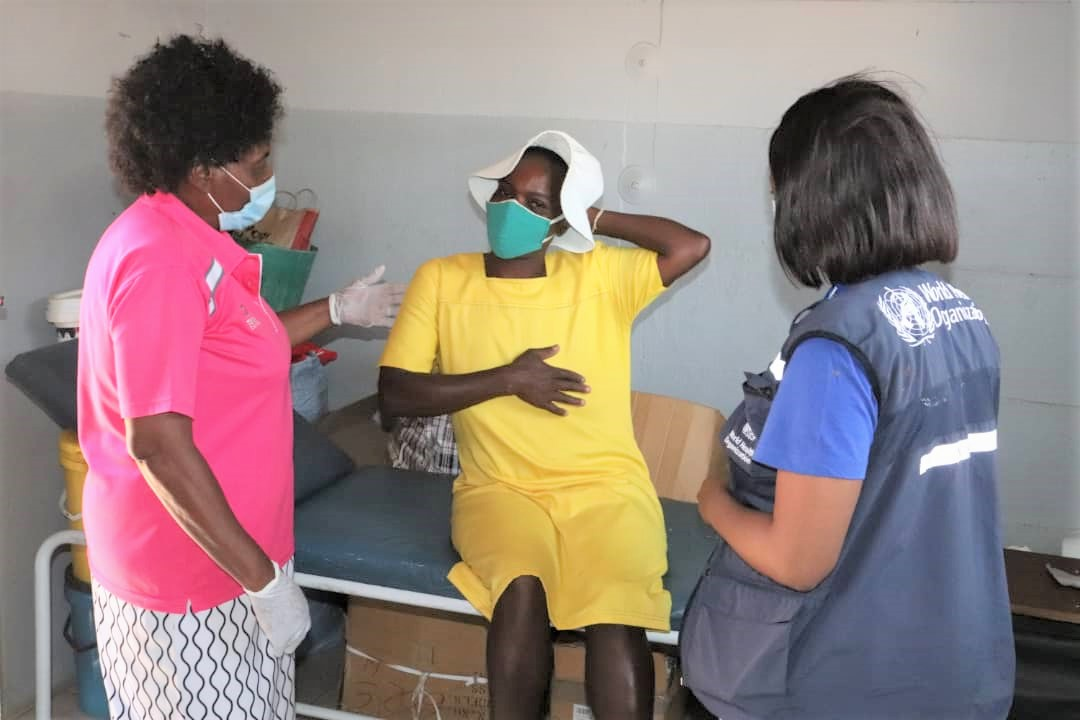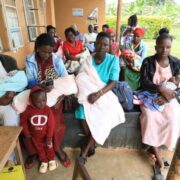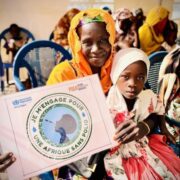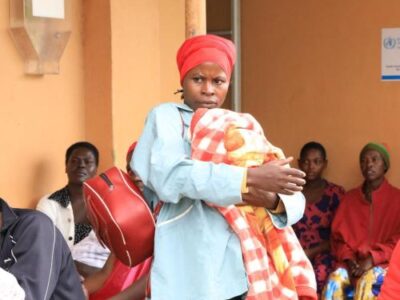

By Tatenda Chimbwanda
Chikurubi, Zimbabwe – A total of 121 women including staff and inmates at Chikurubi Maximum Prison were recently screened for breast cancer. On 7 November 2020, the Cancer Association of Zimbabwe (CAZ), Heart of a Woman Trust and WHO in support of the Government of Zimbabwe’s prisons conducted a breast cancer screening session. The former, was done in a quest to improve access to health services for female prisoners. In addition, the women received free sanitary wear and were sensitized on causes, symptoms and prevention of breast cancer. They were also taught how to conduct monthly breast self-examinations. Furthermore, the women received knowledge on COVID-19 preventive measures such as mask etiquette and hand hygiene. Screening promotes early detection and prompt treatment of the disease remains the cornerstone of breast cancer management and control.
Out of the 121 women screened, breast lumps were detected on one inmate who was immediately referred to Carestream for a breast scan. Furthermore, another inmate diagnosed with cervix abnormalities was referred to CAZ for free cryotherapy to reduce the risk of developing cervical cancer.
“I am so happy l got screened for breast cancer, received free pads and information on COVID-19 as well as how to self-examine for breast cancer myself. Women like myself are often forgotten and l am happy we have been remembered. The knowledge l learnt today will stay with me for life,” explains an inmate Rudo Ndera.
In Zimbabwe, prison clinics do not have the capacity to offer inmates breast cancer screening services. In addition, the costs related to diagnosing and management of cancer are very high. For this reason, most women are demotivated and do not seek cancer services contributing to the late diagnoses of cases in the country. Therefore, in commemoration of breast cancer awareness month, CAZ, Heart of a Woman Trust and WHO brought screening services to the women in prison.
“With assistance of various partners such as CAZ, we have been training our health care workers to screen for breast cancer for both women and men. This will ensure early diagnosis through screening. We are also imparting knowledge in communities to examine themselves regularly and encourage them to visit health facilities when they see lumps,” says Dr Wenseslaus Nyamayaro, MoHCC, Non Communicable Diseases (NCDs) Director.
Despite MoHCC efforts to scale up breast cancer screening, the burden of cancers in Zimbabwe remains very high. For instance, according to the cancer registry 2016 annual report, at least 545 cases were recorded in 2016 alone, with women over 40 years of age being at high risk. Breast cancer, together with other NCDs, contributes 70% of mortality globally. Breast cancer is the most common cancer in women worldwide and second most common in Zimbabwe after cervical cancer.
“Fortunately, screening can be used to diagnose breast cancer before it spreads thereby improving chances of successful management,” noted Dr Alex Gasasira, WHO Zimbabwe Country Representative.
The WHO recommended early detection strategies for low- and middle-income countries are awareness of early signs, symptoms and screening by clinical breast examination. As part of breast cancer awareness month commemorations, WHO partnered with CAZ and Heart of a Woman Trust for the first time in offering direct support to breast cancer screening to vulnerable women such as those in prisons.










Comments